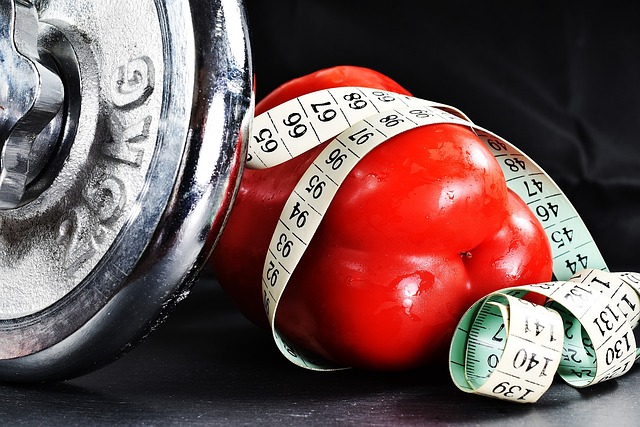There are two ways to improve your health: diet to lose weight and exercise to build strength. There are some nutritional strategies for successful weight loss. Read on to discover these strategies:
1. Nutrient-rich foods: Successful weight loss requires giving nutrient-rich foods a top priority. Fiber includes antioxidants and nutrients found in these foods, which include fruits, lean meats, vegetables, grains, and healthy fats.
It involves the separation of blood sugar and the feeling of hunger. You can boost yourself to lose weight and make sure your body gets the nutrition it needs by adding these things to your diet. Keep in mind that a healthy way to lose weight also requires controlling weight, calorie consumption, and regular physical activity. It is indicated with advice from a healthcare practitioner or dietitian.
2. Limit processed meals and sugars: For better health, it is necessary to limit processed meals and sugars. It harms your overall fitness, lacks nutrients and causes weight gain. To remove it to the bottom:
- Read labels: Look for artificial ingredients and extra sugar on food labels.
- Prepare whole foods: For home-cooked meals, choose fresh produce, whole grains, lean meats, and healthy fats.
- Avoid pure sweet drinks: Limit your intake of soft drinks, energy drinks and soda.
- Choose smart snacks: Instead of packaged snacks, choose nuts, fruits, yogurt or vegetables with hummus.
- Make simple adjustments: Gradually reduce processed foods to create long-lasting habits.
- Use caution when eating out: Ask about sugar levels and choose dishes with fresh ingredients.
- Make a list: Make healthy choices.
3. Practice portion control: To give the impression of larger portions, use smaller bowls and plates.
- To regulate consumption, measure portions using utensils, cups or a food scale.
- To determine the correct serving ratios, read food labels.
- Practice mindful eating by chewing slowly and when you feel full rather than full.
- To help you pay more attention to portion sizes when eating, get screens and TV out of the way.
- Portion snacks into smaller containers ahead of time to reduce snacking.
- Add more vegetables to your plate.
- Enjoy rewards regularly rather than giving them up.
- Stay hydrated to prevent confusion between hunger and thirst.
4. Stay hydrated: It is important to stay hydrated during the day by drinking water. By preventing dehydration from taking cues to feel hungry, it helps control appetite and may reduce junk food intake. Maintaining an adequate amount of water boosts the immune system, aids digestion, supports metabolism, and maintains healthy skin. It is also important to remember that diets high in water and other fluids help maintain proper hydration.
Exercise systems to lose weight effectively:
1. Do regular exercise: It is highly recommended to do at least 150 minutes of moderate-intensity aerobic exercise every week. Exercise is suggested including cycling, swimming, jogging and brisk walking.
Multiple benefits come with these workouts, such as greater mental and physical health, weight control, more energy, and increased stamina. Aim for a moderate level of intensity, spread your workouts out over the week, build up gradually, and get medical help if necessary are among the suggestions. Warming up, cooling down and incorporating variety are recommended for a safe and effective workout.
2. Incorporate strength training: Strength exercises are important to increase metabolism. How to include them in your daily routine:
- Select a range of exercises including push-ups and squats that target different muscle areas.
- To avoid injury, start slowly with bodyweight exercises or small weights.
- To allow for muscle recovery, try to get in at least two training sessions per week.
- Gradually increase the weight, repetitions, or sets to increase intensity.
- Stretching exercises should be used to cool down after exercise and to warm up beforehand.
- Make sure you get enough sleep, eat a healthy diet, and seek professional advice if necessary.
- Increased strength, metabolism and overall fitness are the results of consistent strength training.
3. Find fun activities: Workouts that you enjoy are important to make training fun and lasting. Try activities such as biking, hiking, or team sports. Take into account your preferences, social elements and the range of activities available. Set goals, maintain your daily routine and fit it in with your hobbies. Ultimately, choosing the things you want to do will make it more likely that you'll stick to a regular exercise schedule over time.
4. Increase your activity level throughout the day: Try to go beyond regular training sessions in your daily activity levels. Take the stairs instead of the elevator, walk to nearby errands, and get up and move around when you spend a lot of time sitting.
Additional tips for successful weight loss
1. Make sleep a priority: Try to get 7-8 hours of quality sleep every night. Lack of sleep can disrupt the hormones that control hunger and metabolism. It's hard to lose weight.
2. Dealing with stress: Find healthy ways to deal with stress, such as exercising or going outside. Chronic stress raises cortisol levels, which may encourage weight gain.
3. Seek support: Gather yourself with loving friends and family, consider enrolling in a weight-loss support group, or get expert advice from a licensed personal trainer or registered nutritionist.

Comments
Post a Comment